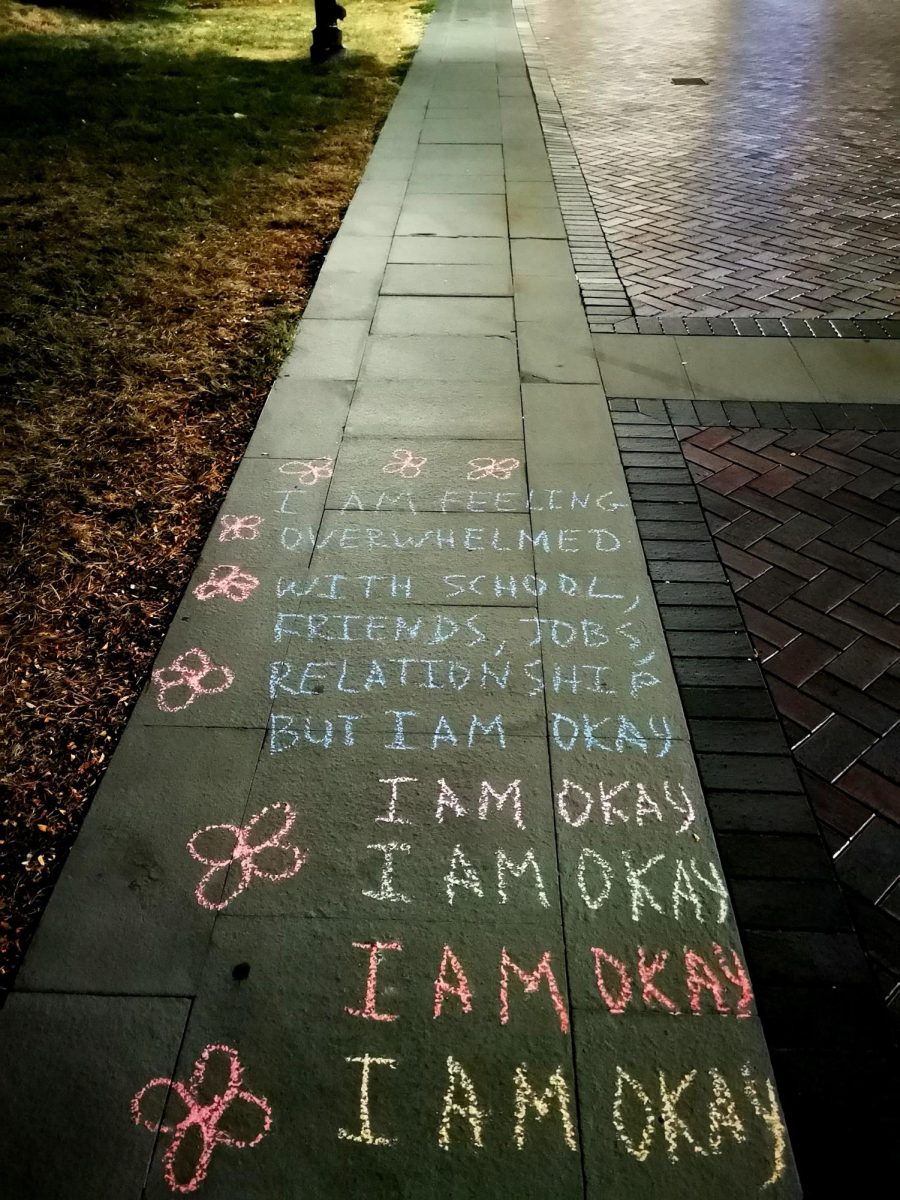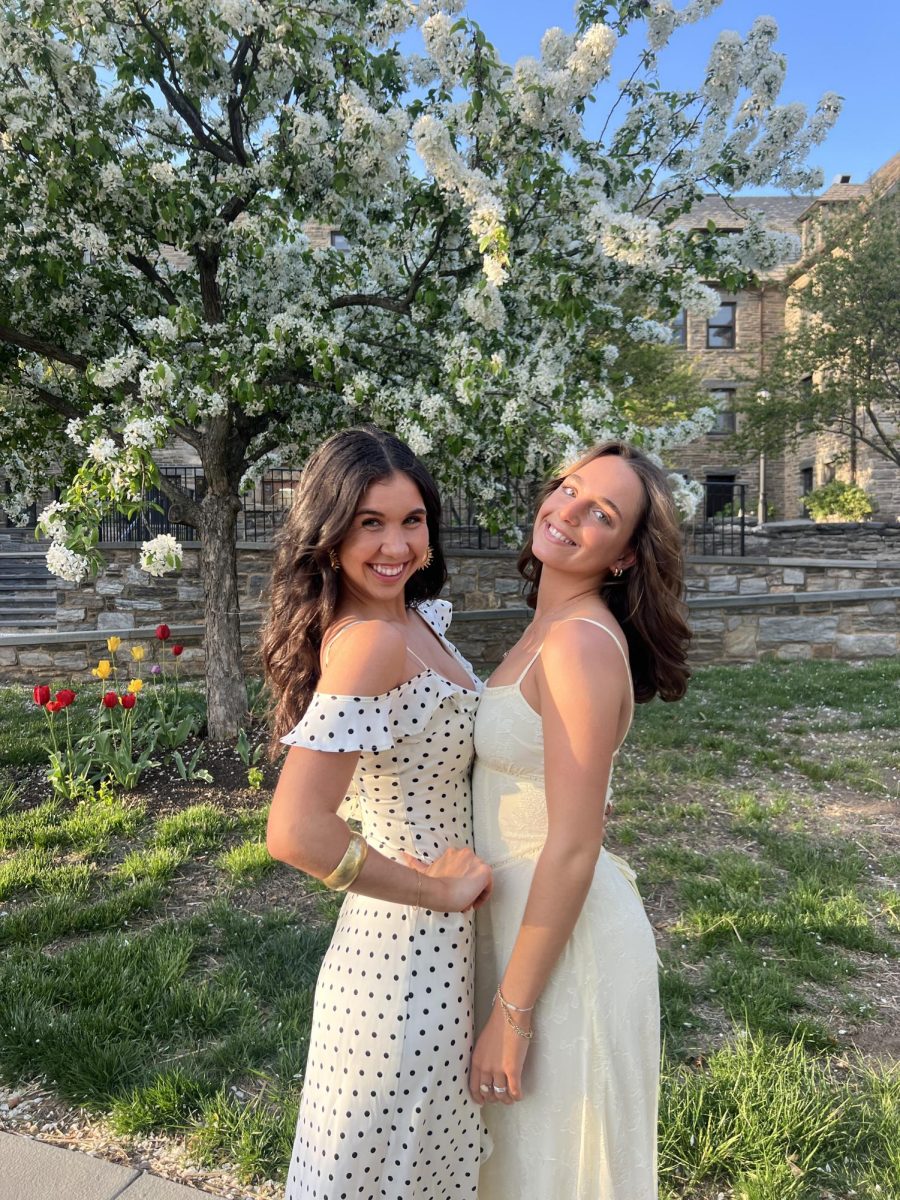This past week and a half, the theatre program has put on an amazing festival entitled SOLO NOVA. Featuring four different solo pieces in the Mullen Center, the festival has highlighted a number of stories that all demonstrate just how much can be achieved in a solo show. There was also an outlier performance included in this festival, a table that has been moving around campus over the course of SOLO NOVA’s time with its identifying sign: the Ministry of Loneliness.
The Ministry of Loneliness, created and performed by Irina Varina, is the only work in the festival to be performed by a non-Villanova alum. Varina has already brought her ministry to Bryn Mawr College, which is how Villanova professor Michael Hollinger found out about her work and decided to include the ministry in SOLO NOVA.
“I wanted to make sure that our students in particular knew that solo performance was more than entering a theatre, sitting in a seat, reading a program and clapping,” Hollinger said. “That solo performance includes performance art, performance events or happenings that don’t necessarily take place in traditional venues.”
The Ministry of Loneliness is surely a fantastic representation of that. The Ministry has been to Philadelphia and even to New York City. Varina sits at her table each evening of this performance window, writing quietly unless someone comes to sit and file a complaint. There is no speaking with the minister, only written communication. A folder is passed back and forth so a visitor never has to speak of their concerns out loud. It is just private enough to create a kind of bubble around the two people at the table while still being a piece of public art.
After the ministry has closed for the day, Varina takes small sections of the complaints she’s heard and chalks them onto the sidewalks. These messages were covering our brick walkways until the rain this weekend washed them away. These messages are an essential part of the ministry’s existence.
“What I liked so much about the ministry was that it was more likely to interact with undergraduate students,” Hollinger said. “And because connecting with others or feeling unconnected with others can be such a big part of being away from home.”
College is often referred to as some of the best years of a person’s life, and while Villanova can give students their best friends, it can also be lonely and isolating to move away from the familiarity of home. Hollinger added that the ministry was important to have on campus because of the inherent “gentleness and tenderness” that recognizing and making space for loneliness facilitates.
“It is built on silence and writing so it acts as a counterweight [to the rest of the festival], like something totally different,” Hollinger said.
Different is definitely the word for this performance. While some students may not have understood the purpose immediately, many were brave enough to sit down with Varina and file a complaint. All complaints are anonymous, and they benefit other students who are feeling lonely and can look at the chalked messages to know they are not totally alone.
Hollinger ended his remarks about SOLO NOVA and the inclusion of the Ministry of Loneliness with a similar sentiment.
“I hope that even witnessing from a safe distance, the ministry would give permission to students who may be grappling with hard feelings to share those with someone and to feel as though it’s not a sign of weakness or insufficiency,” he said. “But you can honor yourself and the things that you feel and know you’re not alone.”







